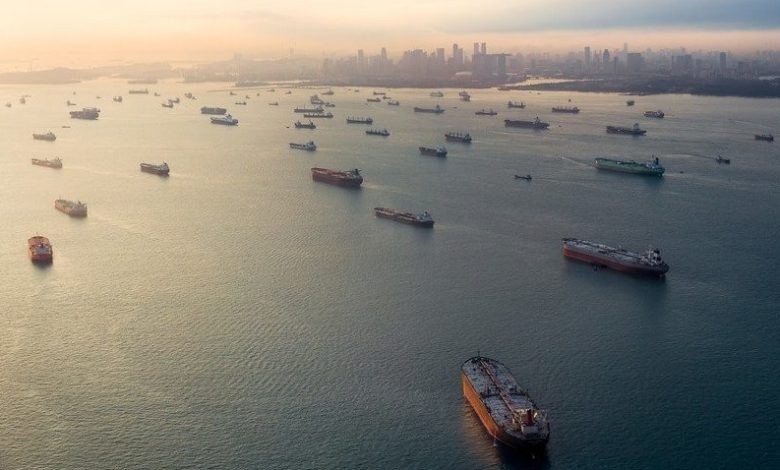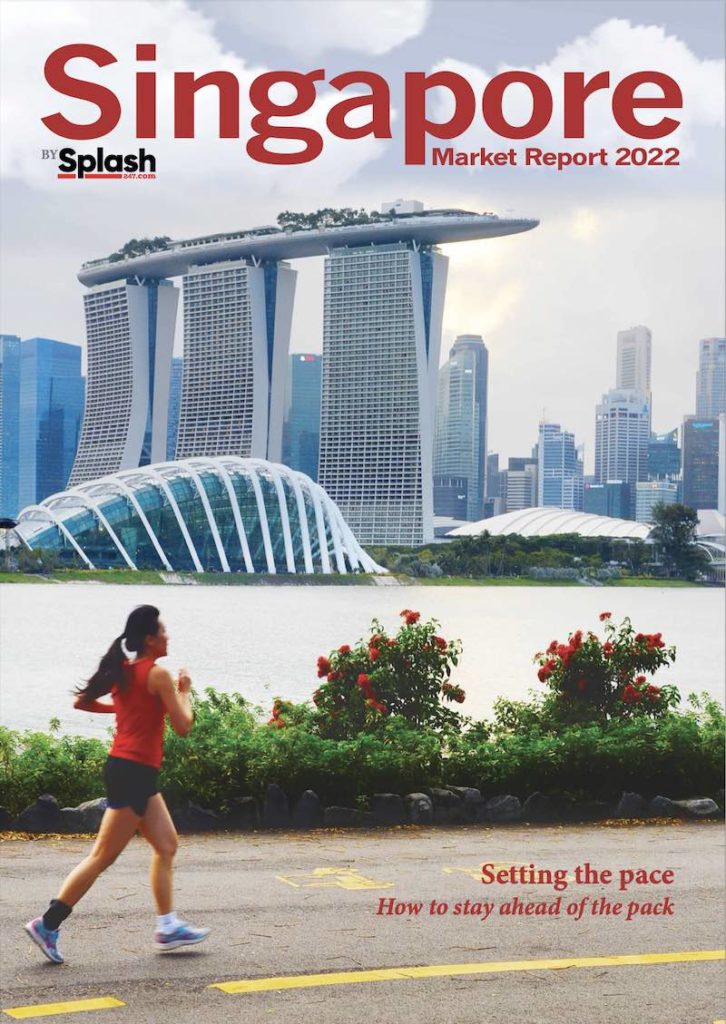Singapore: The view from the top

Kicking off coverage from our brand new Singapore annual report, Splash writers assess the Lion Republic’s hub status.
The two leading maritime hub reports – one compiled by DNV and Menon Economics, and the other by the Baltic Exchange and Xinhua – both crowned Singapore again as the world’s top shipping city, an annual event that is becoming a ritual, so secure and far ahead is this Southeast Asian enclave when it comes to shipping prowess.
“Singapore holds the top slot for attractiveness and competitiveness while also scooping the maritime technology title, thanks to the city-state’s unrelenting focus on digital transformation. Singapore gives way to Athens and Shanghai in shipping and ports and logistics respectively, and losing some ground in maritime finance and law,” noted Dr Shahrin Osman, regional head of maritime advisory at DNV, and co-author of one of the two main shipping hub reports, giving a few pointers for the the city’s maritime leaders on where they can scrub up.
Singapore is fantastic at building meritocratic, transparent, supportive, and fair ecosystems
In the Xinhua-Baltic International Shipping Centre Development Index Report, meanwhile, released in June, the city-state scored a remarkable 94.88 out of a possible 100 points, far ahead of second placed London, which managed 83.04 points.
“Singapore is widely recognised as one of the most important maritime hubs in the world,” says Brian Png, who has just set up The Swedish Club’s brand new office in the republic.
“From tax to insurance, from education to the law courts, and from finance to technology, Singapore is fantastic at building meritocratic, transparent, supportive, and fair ecosystems that encourage the growth of business,” says Rajesh Unni, the founder of Singapore-based Synergy Marine Group. “This is what keeps this wonderful city-state on top of the shipping rankings.”
“Quite simply,” Unni continues, “Singapore gets so many of the big strategic calls right and this helps those in shipping, maritime, and tech to flourish.”
The World Bank’s Ease of Doing Business Index ranks Singapore second in the world, behind only New Zealand, and it’s a clear leader when compared to other rival shipping or technology hubs. Its regulatory environment is supportive of business. Property rights and the rule of law are fair and efficient. Trading across borders, registering a business, enforcing contracts and paying taxes all receive praise from the World Bank.
However, as is customary, the powers that be in Singapore are not taking anything for granted.
Weaknesses continue to be assessed, complaints listened to, and future trends discussed and acted upon.
Osman, co-author of the Leading Maritime Cities report compiled by DNV and Menon, tells Splash: “Singapore can definitely do a lot more in the area of maritime finance.”
Singapore can definitely do a lot more in the area of maritime finance
Quite so, says Alan Hatton, the CEO of Foreguard Shipping. In ship finance, many historically strong shipping names have retrenched from local markets in Asia and alternative financiers tend to operate from elsewhere and serve the market from other countries, Hatton explains, citing Chinese lessors, certain Japanese names and the funds and financiers providing more niche financing solutions.
“Singapore debt or equity capital markets have not been very active in terms of the shipping markets for some time, and more activity and liquidity there would only support Singapore’s maritime sector,” Hatton says.
The authorities are aware of this slight deficiency as our interview with the departing head of the Maritime and Port Authority makes clear on page 21.
Kishore Rajvanshy, managing director of Fleet Management, names a couple of other areas that he thinks could be beefed up. These include education and training to develop the local talent pipeline for technical expertise in shipmanagement, and increased government support for the local ship repair scene.
Cheaper overseas
A common complaint from those surveyed for this magazine is the spiralling costs in Singapore, something that has seen a subsequent shift of some operations to cheaper climes.
“With the rising cost of doing business in Singapore, I note that some segments and business have begun scaling down in Singapore and moving into more low-cost countries,” says Carl Schou, who heads up Wilhelmsen Ship Management, a company which moved its headquarters in the other direction – from Kuala Lumpur to Singapore – four years ago.
“It is becoming so difficult and expensive to attract competence that it is not sustainable for the business long-term,” Schou relays. “Several peer companies are already moving, or will move, lower-level jobs out of Singapore, so this is not a possibility, but is now a reality.”
Many companies have already relocated their companies’ shared-functions such as call centre, billing, IT support to other Southeast Asian countries such as the Philippines and Malaysia. Further functions could also be headed to neighbouring countries.
Sometimes quality suffers when offshoring
It is important to bear in mind how the pandemic has opened top management’s eyes to the ease of office function relocations.
“As with the acceleration of digitalisation, the adoption of remote working tools and practices, on the back of the covid pandemic has helped many maritime employers to operate in a more agile fashion, with teams spread across borders, so it is may well make sense for some organisations to look for more cost-effective models, if certain job functions can be delivered as effectively from new jurisdictions,” says Henrik Hyldahn, the CEO of ShipServ.
David Borcoski, CEO of ASP Ships Group, argues that to operate efficiently the maritime sector must use appropriately priced labour for each level of its business.
“Singaporeans have shown their reticence for doing lower paid roles. This is fine, it’s a free market,” Borcoski says.
If excellent talent is available offshore, such as in the Philippines for example, then companies should offshore these roles, Borcoski advises.
“This avoids conflict with Singapore’s employment policies and makes for an efficient business. Any loss to the Singapore economy as a result is for the government to address,” the ASP boss reckons.
Dr Shahrin Osman, regional head of maritime advisory at DNV, says there’s plenty of scope for greater international ecosystem collaboration between ASEAN neighbours whereby the likes of Indonesia and Malaysia can prosper by taking some of Singapore’s labour functions, allowing the Lion City to focus on more technologically advanced activities and on design and innovation.
“I believe that collaboration can lead to an increase in overall value-add in terms of not only achieving greater efficiency within maritime, but also allowing the ASEAN region as a whole to prosper through increased business activity,” Osman says.
“Offshoring to Malaysia, India and Philippines works up to a point, but sometimes quality then suffers,” warns Cara Carter, who heads up Halcyon Recruitment’s Asia Pacific operations.
This is an extract from the Splash Singapore Market Report 2022, which is being distributed across multiple shipping events in the Lion City this week. Splash readers can access the full magazine for free online by clicking here.

